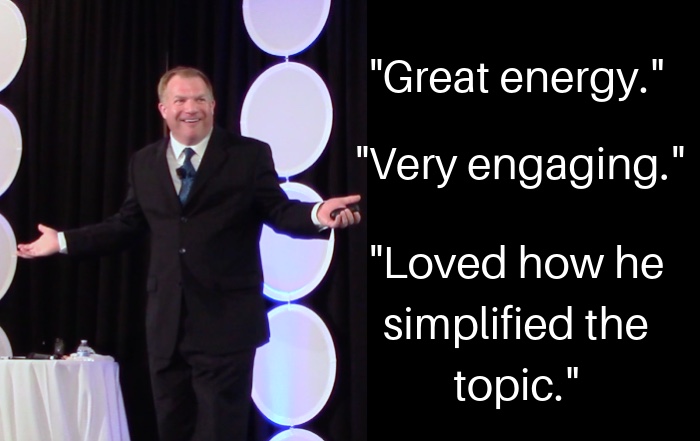 While you will encounter negative comments in your work life, are you paying too much attention to them? Sometimes, we magnify one remark and give it more authority than it deserves. To illustrate this point, let’s go into the world of fashion:
While you will encounter negative comments in your work life, are you paying too much attention to them? Sometimes, we magnify one remark and give it more authority than it deserves. To illustrate this point, let’s go into the world of fashion:
Let’s say you decide to expand your wardrobe with a green shirt. You’ve never owned a green shirt and decide to give it a try.
When you wear it to work, you receive lots of positive comments. They range from, “Great shirt,” to “That shirt makes you look thin.”
But then one coworker says, “That green shirt reminds me of a leprechaun.”
Suddenly, this comment has you nervous. Should you not wear the green shirt again? Is your green shirt saying the wrong things about you? Will you be teased constantly about a pot of gold?
It’s human nature to take one potentially negative remark and amplify its impact. At the same time, we ignore or lessen the weight of the many positive comments.
Imagine the remarks are not about a new shirt but an important project at work. How can you manage the feedback to an appropriate level? Consider this process:
The Source
Does the person have expertise in your area or does he or she just like to supply uneducated opinions. If I’m a pilot, advice from a 20 year Air Force veteran should hold greater weight than someone whose flying experience is limited to paper airplanes.
Both can have opinions but only one should help you in the cockpit.
That’s not to say a fresh pair of eyes can’t have value but keep it in perspective. Expertise matters.
And a remark from you boss may require closer inspection than the janitor.
Do the Negative Comments Have Merit?
Can you learn something from the comments? Or was it just a subjective remark that rubbed you the wrong way?
Successful coaches will challenge performers to improve. There, the focus is on getting better and not just praising the status quo. Both parties have agreed to the relationship and have an expectation of growth and development.
An offhand comment may not fit into that category and should not be embraced.
Did You Misinterpret?
In our green shirt example, is it possible the remark was made with little thought? Some people communicate better than others and some deliver compliments in unusual ways.
You may be losing sleep over something the other person has forgotten.
When unsure about meaning, it can be useful to cheerfully ask questions like, “How so?” or “Tell me more?”
There’s nothing wrong with pursuing clarity in a positive manner.
Power Question
Finally, ask yourself, “Why is this remark important to me?” This can be useful for positive, negative, or ambiguous feedback.
This can help you either embrace or discard it. Have an honest conversation with yourself about negative comments.
Make the Most of Your New Year with Ken Okel






